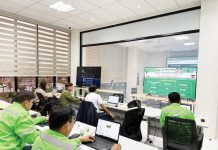
THE RECENT pledge by over 90 Philippine Navy reservists from the coastal towns of Iloilo to combat illegal, unreported and unregulated (IUU) fishing in Western Visayas is a significant step in the region’s efforts to protect its marine resources. This commitment, articulated during their orientation on Marine Ecology and Fishery Laws in Estancia, is a timely response to a pressing environmental and economic challenge.
The severity of IUU fishing and the need for a united, decisive approach cannot be overemphasized. This alliance between the Naval Reserve Center and the Bureau of Fisheries and Aquatic Resources (BFAR) is a synergy of resources and expertise spotlighting the urgent need for active intervention to safeguard our seas and sustainably utilize our marine resources.
IUU fishing poses a grave threat not only to marine biodiversity but also to the livelihoods of local communities and the nation’s food security. The Navy reservists’ support for the Regional Inter-Agency Task Force is critical in ensuring the conservation and protection of these resources. As task force members, they bring valuable skills and commitment to a frontline role in this environmental battle.
The necessity of collective participation in protecting and managing fisheries and aquatic resources underscores the interconnected nature of these efforts. Effective management of these resources is essential for sustaining the fisheries sector, a vital component of the regional economy and a key to ensuring food security.
The educational aspect of this initiative is particularly noteworthy. The reservists were introduced to the science behind Fisheries Management Areas (FMAs), the benefits of managing fisheries at the FMA level, and the roles of various stakeholders. This knowledge base is fundamental to enforcing fishery laws and regulations effectively.
Additionally, the emphasis on the Visayan Sea Closed Season and the Bantay Visayan Sea campaign represents a proactive approach to conservation. These measures, aimed at preventing overfishing and promoting community involvement in reporting fisheries violations, are critical for the long-term sustainability of fish stocks.
The commitment of these Navy reservists is an example of the collaborative effort required to tackle the complex issue of IUU fishing effectively. Their role extends beyond enforcement; it’s about educating, engaging, and empowering communities to participate in the stewardship of their marine resources. This initiative is a model of how a unified approach can lead to significant strides in environmental conservation and sustainable resource management, ensuring the health of our oceans for future generations.







